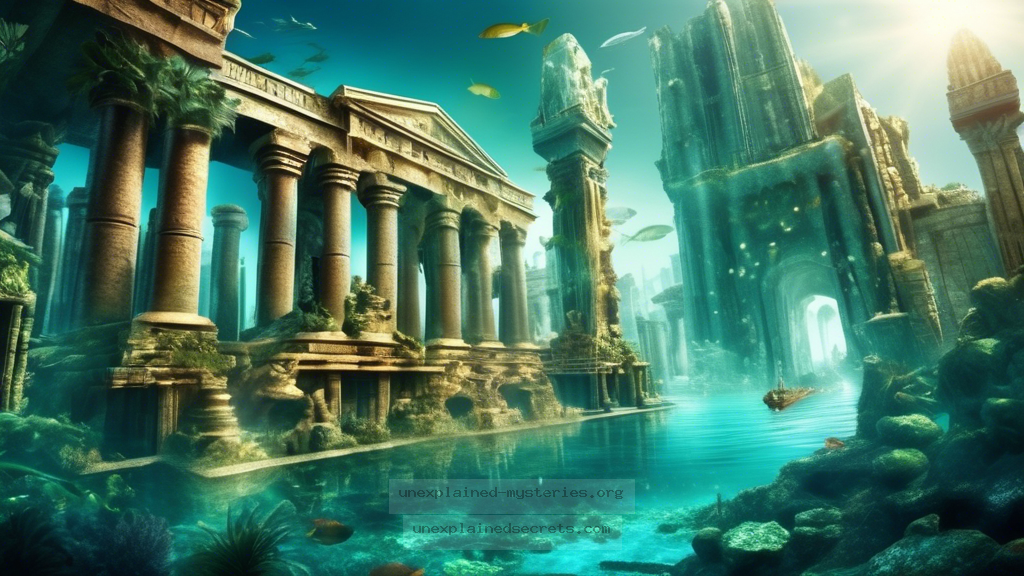What Happened to the Lost City of Atlantis and Why Does It Continue to Captivate Our Imagination?
What Happened to the Lost City of Atlantis and Why Does It Continue to Captivate Our Imagination?
The story of Atlantis is one of the most enduring and enigmatic legends in human history. This ancient civilization, often described as a utopian society, has sparked intrigue, speculation, and debate for centuries. The question of what truly happened to Atlantis is not just about the fate of a lost city; it touches on themes of advanced technology, human hubris, and the quest for knowledge. In this blog post, we will delve into the historical context, core theories, and ongoing research surrounding Atlantis, and why this mystery continues to captivate our imagination.
Historical Context: The Origins of the Atlantis Legend
The tale of Atlantis first appeared in the dialogues of the Greek philosopher Plato, specifically in “Timaeus” and “Critias,” written around 360 BCE. Plato describes Atlantis as a powerful and advanced civilization that existed approximately 9,000 years before his time, situated beyond the “Pillars of Hercules,” which is commonly identified as the Strait of Gibraltar. According to Plato, Atlantis was a large island that ultimately fell out of favor with the gods due to its moral decay and was submerged by the ocean in a cataclysmic event.
This narrative has led to various interpretations. Some scholars argue that Plato intended Atlantis as an allegory for his philosophical ideals, while others believe it was based on real historical events. The lack of concrete archaeological evidence has contributed to the ongoing debate about whether Atlantis was a fictional construct or a lost civilization that faced catastrophic demise.
Core Theories: Was Atlantis a Real Place?
Over the years, numerous theories have emerged regarding the possible location and existence of Atlantis. Here are some of the most prominent ones:
- Santorini (Thera): Some researchers propose that the Minoan civilization on Santorini, which was destroyed by a volcanic eruption around 1600 BCE, may have inspired Plato’s story. The eruption caused massive tsunamis and changes in the landscape, akin to the story of Atlantis.
- Antarctica: A more fringe theory suggests that Atlantis was located in Antarctica, which some believe was once a temperate region before climate changes led to its ice-covered state.
- Caribbean Islands: Several locations in the Caribbean, such as Cuba and Bimini, have been posited as potential sites for Atlantis, often due to underwater structures that some claim resemble ruins.
Each theory presents a compelling case, but none provide definitive proof of Atlantis’s existence. This continual search for Atlantis fuels both academic and popular interest, leading to expeditions and studies in these proposed areas.
Practical Implications: The Quest for Evidence
Despite the absence of conclusive evidence, the quest for Atlantis has led to significant archaeological and geological studies. Researchers employ various methods, including underwater archaeology and geological surveys, to uncover potential artifacts or structures that could validate the existence of Atlantis. For example, the discovery of the ancient city of Akrotiri on Santorini has provided insights into Minoan civilization and its potential link to the Atlantis myth.
The implications of finding evidence of Atlantis extend beyond historical curiosity. Such discoveries could reshape our understanding of ancient cultures, their technological advancements, and their societal structures. Moreover, the search for Atlantis often intersects with broader studies of ancient maritime navigation and trade routes.
Alternative Perspectives: Skepticism and Criticism
While the allure of Atlantis persists, many scholars remain skeptical about its historical validity. Critics argue that the lack of archaeological evidence and the fantastical elements of Plato’s account suggest that Atlantis is more allegorical than historical. They point out that no ancient texts outside of Plato corroborate the existence of a civilization matching his description.
Moreover, some researchers caution against romanticizing the idea of lost civilizations. The fascination with Atlantis can sometimes overshadow the rich histories of known ancient cultures, leading to a skewed understanding of human progress and achievement.
Common Misconceptions: Debunking the Myths
Several misconceptions surround the story of Atlantis that deserve clarification:
- Atlantis was a technologically advanced society: While Plato described Atlantis as advanced, it is essential to recognize that many ancient civilizations, such as the Egyptians and Mesopotamians, also demonstrated remarkable technological and architectural feats.
- Atlantis was a single, unified civilization: The idea of a monolithic Atlantis may be misleading. Some interpretations suggest that Atlantis encompassed multiple cultures and regions rather than a singular entity.
- All theories about Atlantis are credible: Numerous theories exist, but many lack substantial evidence. It’s crucial to approach claims critically and rely on peer-reviewed research.
💡 Key Insight: The allure of Atlantis lies in its mystery, but it is essential to distinguish between fact and fiction when exploring its legacy.
Best Practices for Investigation: Researching Atlantis
For those interested in exploring the mystery of Atlantis, here are some best practices to consider:
- Consult Academic Sources: Rely on peer-reviewed journals and books by credible historians and archaeologists to gain a well-rounded understanding of the subject.
- Engage with Archaeological Findings: Stay updated on new discoveries and archaeological advancements that may shed light on ancient civilizations and potentially connect to the Atlantis narrative.
- Participate in Discussions: Engaging with academic forums or attending lectures can help to broaden perspectives and deepen understanding.
Future Developments: Ongoing Research and Exploration
The search for Atlantis continues to inspire researchers and adventurers alike. Ongoing studies in underwater archaeology, remote sensing, and even advancements in technology like LiDAR (Light Detection and Ranging) are opening new avenues for exploration. For instance, archaeological surveys of submerged landscapes, particularly in the Mediterranean and Caribbean, may yet reveal undiscovered sites that could contribute to our understanding of ancient maritime cultures.
Moreover, as climate change continues to impact coastal regions, the study of submerged civilizations may become more critical. Understanding how ancient societies adapted to environmental changes can provide valuable lessons for modern society.
✅ Future Insight: Keep an eye on emerging technologies in archaeology, as they may soon help us uncover the mysteries of the past, including that of Atlantis.
Conclusion: The Enduring Mystery of Atlantis
The mystery of what happened to the lost city of Atlantis remains unsolved, yet it continues to captivate our collective imagination. From its origins in Plato’s dialogues to the ongoing search for evidence, Atlantis serves as a symbol of human curiosity and the quest for knowledge. Whether a real civilization or a philosophical allegory, Atlantis challenges us to contemplate the complexities of ancient societies and the lessons they may hold for our future.
As research continues and new discoveries emerge, the legend of Atlantis will likely remain a topic of fascination for generations to come. Its mystery encourages us to explore, question, and ultimately understand the depths of our history and the civilizations that came before us.
Other Articles
Recent Posts
- What Happened to Flight MH370? The Conspiracy Theories That Still Haunt Us
- What Secrets Lurk Within the Walls of the Infamous Trans-Allegheny Lunatic Asylum?
- What Evidence Supports the Existence of Bigfoot in the Pacific Northwest?
- What Happened to the Indus Valley Civilization? Unraveling the Mysteries of Ancient Urban Life
- Can Telepathy Be Scientifically Proven Through Laboratory Evidence?







